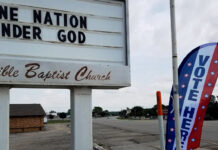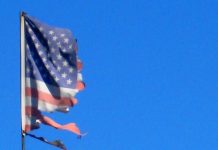 For those who choose to celebrate Martin Luther King, Jr.?on this national holiday dedicated to the iconic civil rights leader it is important in honoring his legacy that we recognize he had evolved into much more than that before his untimely death.? King was many things, not all necessarily good, because he was, after all, still human, and as humans?we are inextricably flawed.? Most notably, he was and is widely remembered as the non-violent civil rights leader who marched for equal rights and justice for Blacks in America.
For those who choose to celebrate Martin Luther King, Jr.?on this national holiday dedicated to the iconic civil rights leader it is important in honoring his legacy that we recognize he had evolved into much more than that before his untimely death.? King was many things, not all necessarily good, because he was, after all, still human, and as humans?we are inextricably flawed.? Most notably, he was and is widely remembered as the non-violent civil rights leader who marched for equal rights and justice for Blacks in America.
That’s the official narrative?those who write history?would have us remember — pictures of King marching down Mississippi, Alabama and Georgia streets singing “We Shall Overcome”, sitting in “White Only” establishments protesting segregation, along with the all-time favorite “Dream” speech, the speech where he speaks of a colorblind utopian society where individuals are judged by the “content of their character.”
But to those who would seek to give us this diluted version of King and betray his true legacy, we who know better unabashedly?reject this.? Before his assassination in 1968 King had evolved into not only a radical but a human rights activist who was justly opposed to the corrupt capitalist system we are witnessing today, the socio-economic disenfranchisement of people worldwide.? This is why he was so opposed to the Vietnam War.
King grew to understand that “injustice anywhere was in fact a threat to justice everywhere.”? He knew the plight of mankind far exceeded civil rights.? To not speak out was to betray his conscience.
“A Time to Break Silence” April 4, 1967:
Over the past two years, as I have moved to break the betrayal of my own silences and to speak from the burnings of my own heart, as I have called for radical departures from the destruction of Vietnam, many persons have questioned me about the wisdom of my path. At the heart of their concerns this query has often loomed large and loud: Why are you?speaking about war, Dr. King? Why are you joining the voices of dissent? Peace and civil rights don’t mix, they say. Aren’t you hurting the cause of your people, they ask? And when I hear them, though I often understand the source of their concern, I am nevertheless greatly saddened, for such questions mean that the inquirers have not really?known me, my commitment or my calling.
Time magazine called this speech “demagogic slander that sounded like a script for Radio Hanoi,” and the Washington Post?wrote King had “diminished his usefulness?to his cause, his country, his people.” It was this speech that branded King public enemy number one and the target of J. Edgar Hoover’s?crusade.
Today “we” honor King.? “We” give him a national holiday, speak of how his vision has been fulfilled, particularly with the election of the nation’s first Black president.? But if we are to pay sincere homage to King then let us do so by remembering the King who had far matured beyond the Black Civil Rights leader he began as?to the revolutionary human activist who threatened the?existing political?establishment, because that is the kind of thing that gets?one assassinated, not the former.
Edited by DH.




